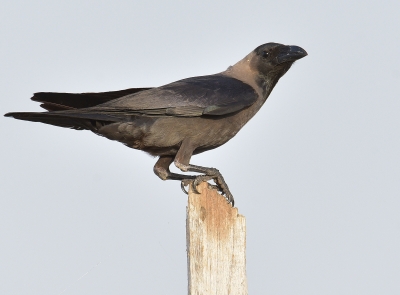
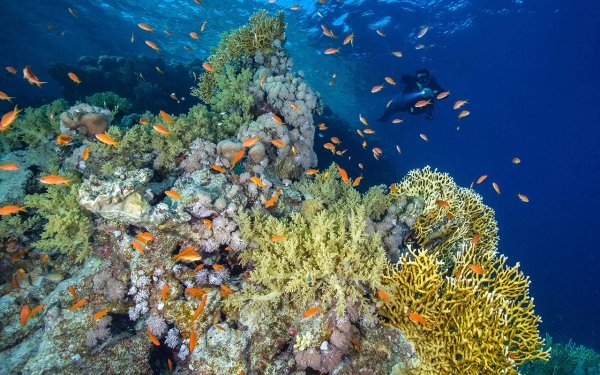
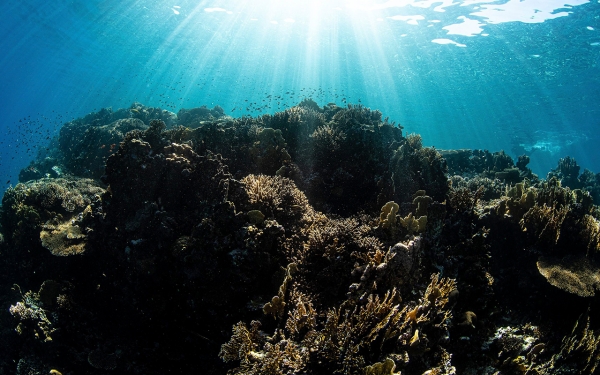
Environmental protection in the Kingdom of Saudi Arabia refers to the ecosystems and methods used by relevant entities to support the preservation of the environment and its balance in the Kingdom. The General Environmental Regulation, issued in 2001, defined the protection of the environment as the preservation of the environment, and the prevention and reduction of its pollution and degradation. To protect the environment and preserve wildlife, the Kingdom has issued a number of laws and legislation, including: The Law of Wildlife Reserves, the Law of Hunting Wild Animals and Birds, the Law of Trading Endangered Wildlife Species and Their Products, and the Law of the Municipal Solid Waste Management. The Kingdom is home to the largest environmental reconstruction project in history, which aims to compensate for the Gulf War (1991-2013), generating costs of over USD1.1 billion.
Specialized environmental centers in the Kingdom
The Kingdom established five specialized environmental centers, which were announced in March 2019. These centers are: the National Center for Vegetation Cover and Combating Desertification (NCVC), the National Waste Management Center, the National Center for Environmental Compliance (NCEC), the National Center of Wildlife (NCW), and the National Center for Meteorology.
The Kingdom plays numerous roles in preserving the environment. This includes the implementation of many environmental initiatives and programs that helped reduce CO2 emissions by 28 million t annually by replacing thermal technologies and increasing the use of green technologies.
Environmental protection was placed at the heart of every association, initiative, and event in the Kingdom. For instance, King Salman’s National Awareness and Sustainable Development Program was announced in 2016 aiming to strengthen social engagement in localizing sustainable development in the Kingdom. The latter also hosted the fifth edition of the GCC Environmental and Sustainable Development Forum in 2015. In 2016, King Salman’s National Awareness and Sustainable Development Program, which aims to strengthen social engagement in localizing sustainable development in the Kingdom, was implemented.
Localization of environmental technologies in the Kingdom
The Kingdom’s environmental organizations work on knowledge networking with their international counterparts to promote the protection of the environment. In this context, the National Center for Environmental Compliance (NCEC) develops strategic partnerships aimed at localizing and developing advanced environmental technologies by using air quality monitoring and tracking technologies, greenhouse gas reduction technologies, water purification and recycling technologies, groundwater pollutants removal technologies, and desertification control technologies.
The Kingdom has established institutions related to environmental affairs and its fields, including the Prince Sultan Institute for Environmental, Water, and Desert Research, which became operational in 1986 under the name Center for Desert Studies, as an independent administration linked to the director of King Saud University. In 2000, the center's name was changed to Prince Sultan Center for Environmental, Water, and Desert Research until 2011 when it was amended to Prince Sultan Institute for Environmental, Water, and Desert Research. The institute supports creative scientific and applied research related to the environment, water, and desert.
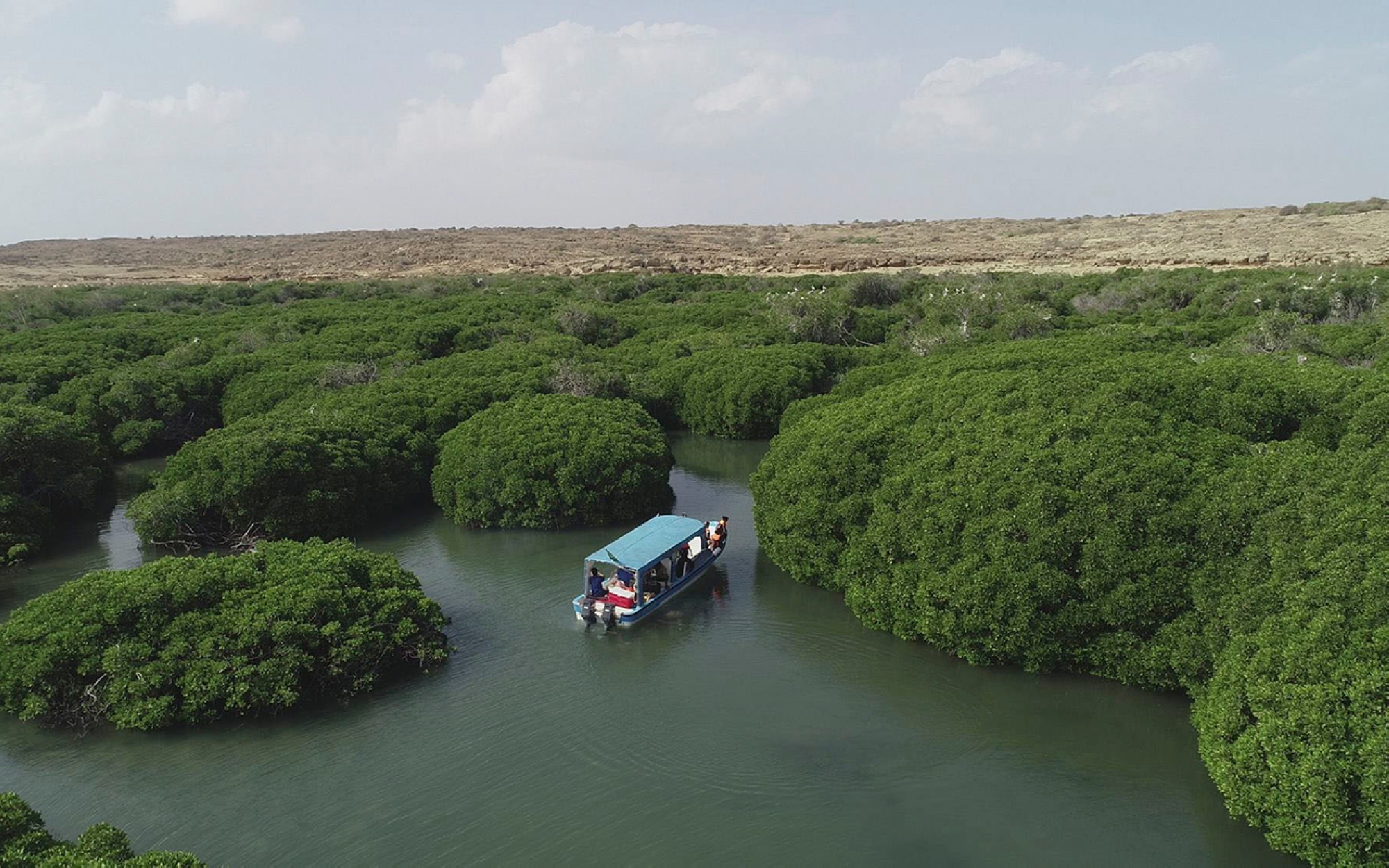
Diversity of environmental protection in the Kingdom
The Kingdom’s concern for protecting the environment involved rare and endangered species of animals, and plants, as well as land and sea birds. In 1986, the Kingdom established the National Commission for Wildlife Conservation and Development, as stipulated in Article (32) of the Basic Law of Governance concerning the Kingdom's commitment to preserving and protecting the environment.
The Kingdom’s increased efforts in environmental protection led to the announcement of fifteen protected areas representing most of the Kingdom’s ecosystems, covering about half of the area to be protected in accordance with international standards and the proposed national law for protected areas. Consequently, several managers have been appointed for the protected areas.
Government agencies have integrated their efforts with major companies and institutions in the Kingdom in the field of environmental protection through a number of initiatives, such as Aramco's initiative in 1963 to develop the first environmental plan. The latter sought to protect the environment against pollution and focused on controlling coastal water pollution and monitoring drinking water and sewage. Moreover, SABIC's initiative selected the latest adequate and appropriate technologies since its inception to reduce and limit the negative impacts on the environment in its operations. As for the environmental monitoring program implemented by the Royal Commission for Jubail and Yanbu, it aims to monitor air and water quality, and dispose of industrial waste.
Environmental protection institutions in the Kingdom
In line with Saudi Vision 2030, the Kingdom established the Special Forces for Environmental Security to activate and implement environmental laws and perform comprehensive tasks and responsibilities covering ecologically significant areas throughout the Kingdom.
The institutional work also involved the establishment of the Saudi Society for Environmental Science at King Abdulaziz University, based on the Kingdom's interest in environmental issues and protection through vocational institutions and universities. On the other hand, the society finds sustainable development programs, enriches voluntary work, and reinforces the private sector’s role to serve environmental issues in the field of environmental protection and preservation.
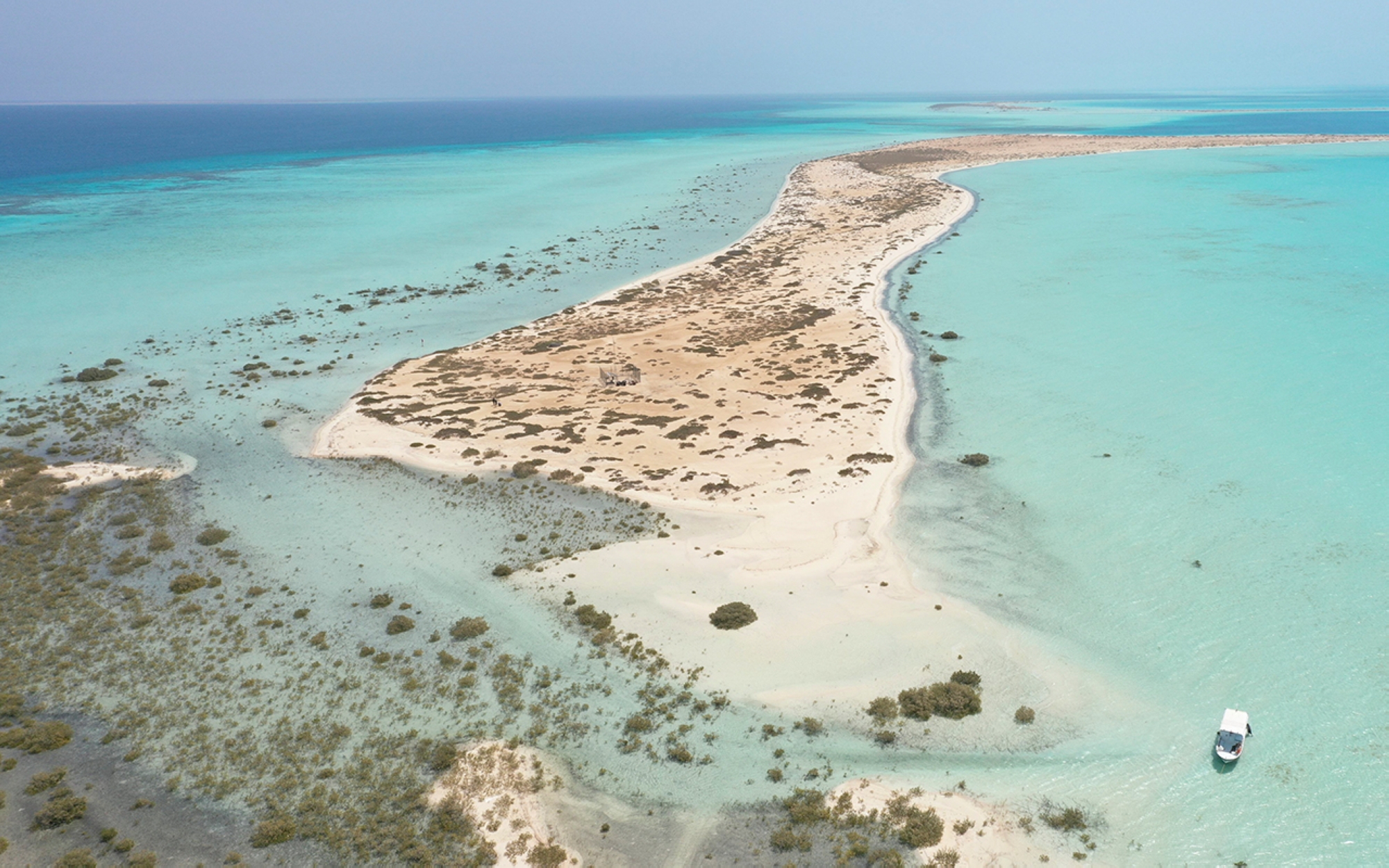
Environmental protection initiatives
Several initiatives to conserve marine life have been launched as part of the Kingdom’s environmental efforts, including: Fisheries Research Center, Faculty of Marine Sciences at King Abdulaziz University, Saudi Aquaculture Society (SAS), Fisheries Research Center at King Faisal University, Red Sea Research Center at King Abdullah University of Science and Technology, and the National Program on Environmental Awareness and Sustainable Development, which aims to raise awareness about environmental issues and develop a sense of individual and collective responsibility to conserve the environment.
In an international context that aligns with the international role of the Kingdom, His Royal Highness Prince Mohammed Bin Salman Bin Abdulaziz Al Saud, Crown Prince and Prime Minister, announced in 2021 the Saudi Green Initiative, which is aimed at planting ten billion trees, in addition to the Middle East Green Initiative, which seeks to plant forty billion trees. Both initiatives are part of Saudi Vision 2030 which prioritizes environmental protection. In 2018, the Kingdom approved the National Environment Strategy, which includes sixty-five environmental initiatives addressing various environmental aspects, at a total cost of SAR50 billion. These initiatives were aimed at boosting environmental commitment, promoting waste management, and protecting marine and terrestrial environments.
The Kingdom coordinates and communicates with environmentally specialized international organizations. In 2021, the Kingdom signed three agreements with the International Maritime Organization in London. These agreements are to support initiatives concerned with the protection and development of the marine environment, in line with the objectives of the National Transport and Logistics Strategy, to achieve Saudi Vision 2030. During its presidency of the G20 in 2020, the Kingdom launched two global environmental initiatives: an initiative to reduce the degradation of land and wildlife habitats in forests, grasslands, and other terrestrial ecosystems, as well as another initiative that establishes a global platform to accelerate research and development for coral reef conservation. This initiative supports research, studies, and exchanging information to enhance the protection and preservation of coral reefs.
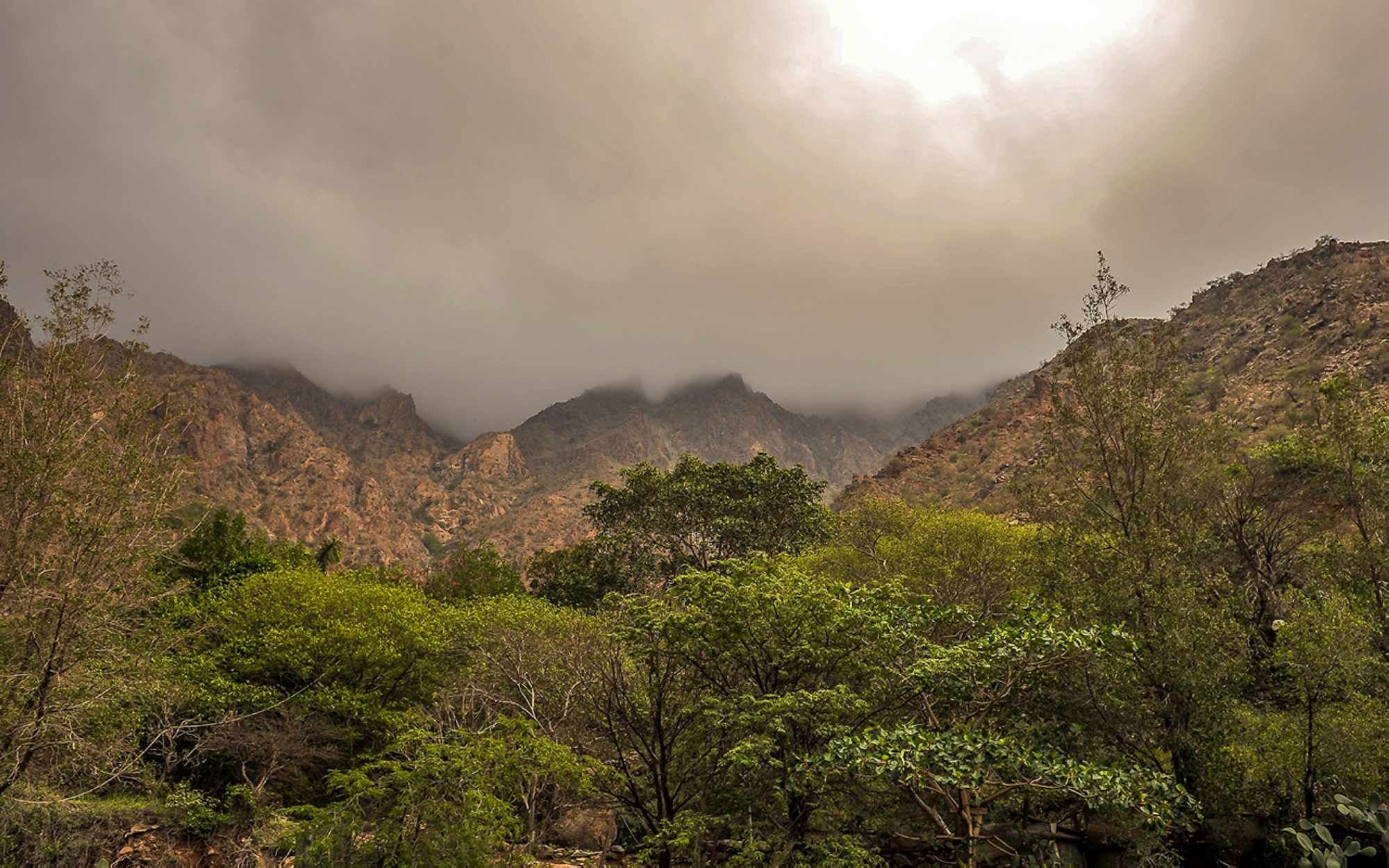
The Kingdom excels in environmental indicators
The Kingdom proved its commitment to protect the environment locally and internationally. In 2021, it was ranked first in two environmental performance indicators: Tree Cover Loss and Wetland indicators, thus outperforming 180 countries. Moreover, the Kingdom surpassed 172 countries in preserving and protecting natural environments, and preventing the extinction of rare animal species, ranking eighth in the world in the Species Habitat Index.
At the regional level, the Kingdom was also ranked first in the Middle East and North Africa, and outperformed 133 countries by ranking thirty-fourth in the world in the Forest Soils and Site Index, which evaluates land and forest quality, as well as soil resources and their impact on the citizens’ quality of life. Moreover, the Kingdom was ranked seventieth and nineteenth worldwide respectively in the No Floods and Sustainable Nitrogen Management as sub-indicators of the Forest Soils and Site.
The Kingdom was also highly ranked in the Satisfaction with Efforts to Preserve the Environment indicator, as it was ranked thirteenth globally among 167 countries, according to Gallup polls which measure efforts to preserve environmental sustainability.
The Kingdom fulfills the UNCC's requirements
The Kingdom celebrated its fulfillment of the United Nations Compensation Commission (UNCC) requirements for the management of the Environmental Rehabilitation Program. The celebration was held in the city of Geneva on June 14, 2013, with the participation of Prince Turki Bin Nasser Bin Abdulaziz, former President General of Meteorology and Environmental Protection. In his speech, he thanked the UNCC for the assistance it provided to the success of the program’s plans. Moreover, he also praised the progress of the team in achieving the desired goals, and leveraging them in the long term for the benefit of the Kingdom in general and the environment, natural resources, and wildlife in particular.
The plan for the environmental rehabilitation program began after the Gulf War in 1991, as a result of the unprecedented damage that struck the Arabian Gulf region at the time and its highly sensitive environment. Subsequently, the UNCC was established by a decision of the UN Security Council. Its operations persisted for twenty years, during which inquiries, surveys, and studies were conducted. Then, the demands of the affected countries were submitted, evaluated, and approved. The necessary amounts were allocated to finance and implement the program until the desired results were achieved, such as planning, designing, preparing, managing, and implementing the program aimed at treating, rehabilitating, and rebuilding environmental damage, in addition to leaving a sustainable natural and cultural legacy in the region.
The program is one of the largest environmental reconstruction programs in the world. Its value was estimated at about USD1.1 billion, allocated to treat, rehabilitate and reconstruct the resources of sensitive desert and coastal environments. When laying the foundations of its work, the Kingdom focused on achieving sustainability. The funding was not only used to pave the desert, plant shrubs or remove asphalt from the coast to plant mangroves, but the money was also spent on specialized programs to create a sustainable, cultural legacy in environmental work.
Related quizzes
Related articles

